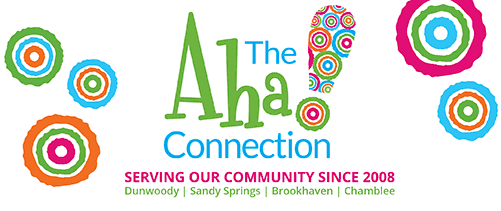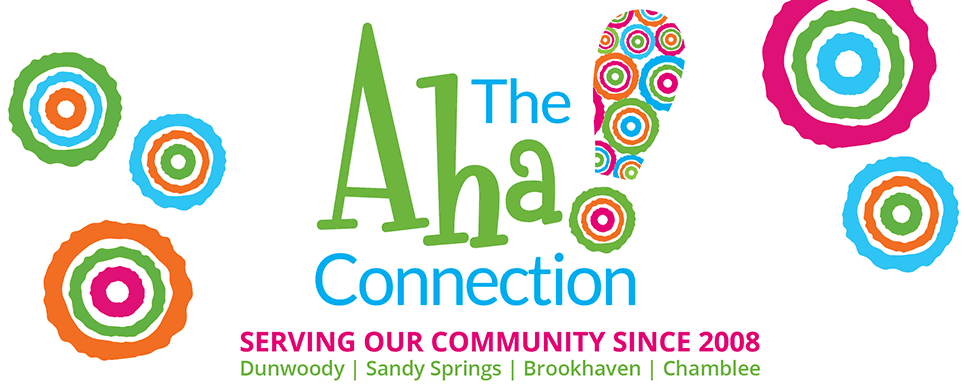by Neitcha Thomsen, LCSW of Atlanta Specialized Care for The Aha! Connection

The topic of procrastinating or “putting things on the backburner” often comes up when working with individuals with ADHD and those struggling with executive functioning skills. Procrastination is not a problem of being lazy but often is due to avoiding certain emotions. People will avoid emotions such as anxiety, boredom or confusion. If you find yourself avoiding a task, ask yourself “what are my feelings about this task”? Is it boring, am I overwhelmed by the task or do I not know how to do it? Learning tools to regulate our emotions can support our success in life.
Tips and tools to manage emotions:
Boredom:
-
Calculate how long are you able to do the task before you get bored?
-
If you can tolerate 20 minutes, set a timer and allow yourself to stop when the timer goes off.
-
Identify a reward. After completing the task, transition into the activity you enjoy.
-
Some tasks can be done while engaging in something enjoyable. For example, listen to your favorite podcast while using the treadmill or folding laundry.
Anxiety:
-
Often anxiety over a task is due to overwhelm. It can be helpful to break it down into smaller steps and then focus on just taking that first small initial step.
-
Remind yourself of the purpose of the task and identify a value that you are working towards. For example, “responding to work email will allow me to feel accomplished and competent”.
-
Some individuals feel less anxious if they can ground themselves through some deep breaths or using a fidget toy.
-
Notice the thoughts you have about the task that illicit anxiety. Are you jumping to the worst conclusion or telling yourself this is going to be horrible?
Confusion:
-
Do you know how to complete the task? For example, a parent might tell a child to “clean up their bedroom”. Does the child know what this means? Do the task with them the first time and say, “cleaning your room means to put all the dirty clothes in the hamper, put your toys in the toybox, put your clean clothes in the drawers”, etc.
-
Take out a piece of paper and write down what it is you are trying to do. Identify what steps are needed to complete the task.
Additional tools that will help set someone up for success in overcoming procrastination might include noticing what time of day is better for them for the task. Removing any distractions such as putting cell phones in silent mode or moving to a quiet location. Using a tool called “body doubling” which is having someone in the room with you can be very helpful. The other person can be working on something else as you work on your task.
The next time you find yourself procrastinating, remember to stop and notice the feelings and thoughts you are having about the task. Try some of the above tools to help regulate emotions. A therapist can also be a great resource to learn more ways to regulate emotions and overcome challenges around procrastination.
 Neitcha Thomsen, a licensed clinical social worker (LCSW), received her Master of Social Work from the University of Georgia and her undergraduate degree in Social Work from The University of Texas.
Neitcha Thomsen, a licensed clinical social worker (LCSW), received her Master of Social Work from the University of Georgia and her undergraduate degree in Social Work from The University of Texas.
Mrs. Thomsen has extensive experience working with Young Adults and Adults with mood disorders, psychotic disorders, anxiety, OCD, grief, and insomnia. In addition, she works with individuals on the autism spectrum along with providing individual support for executive functioning skills. She is a mental health advocate in the Atlanta community and is passionate about empowering and supporting families and individuals impacted by mental illness through their journey of recovery, ending stigma and identifying community mental health resources.
Mrs. Thomsen uses a variety of modalities such as Cognitive Behavioral Therapy (CBT), Motivational Interviewing, psychoeducation and Exposure and Response Prevention Therapy (ERP) based on the needs of the client. She is trained in Cognitive Behavioral Therapy for Insomnia (CBT-I) which is considered the gold standard for the treatment of Insomnia. She empowers clients in their journey through a framework of the recovery model along with focusing on individual strengths. She aids individuals to discover through the treatment process their personal strengths, qualities and ability to not only heal but thrive in life. She works from a client centered framework focusing on education, protective factors, values, connection to others and developing skills while focusing on each client’s personal goals for therapy.
Mrs. Thomsen has experience in both the inpatient and structured outpatient psychiatric program settings. She has worked as a program therapist and program director. She has served on the board of NAMI Northside. Before embarking on her work in the field of mental health she worked as a Spanish interpreter and cultural liaison in the school system along with facilitating community outreach work. She has lived in Mexico, Japan and Australia and loves to travel and learn about new cultures.








